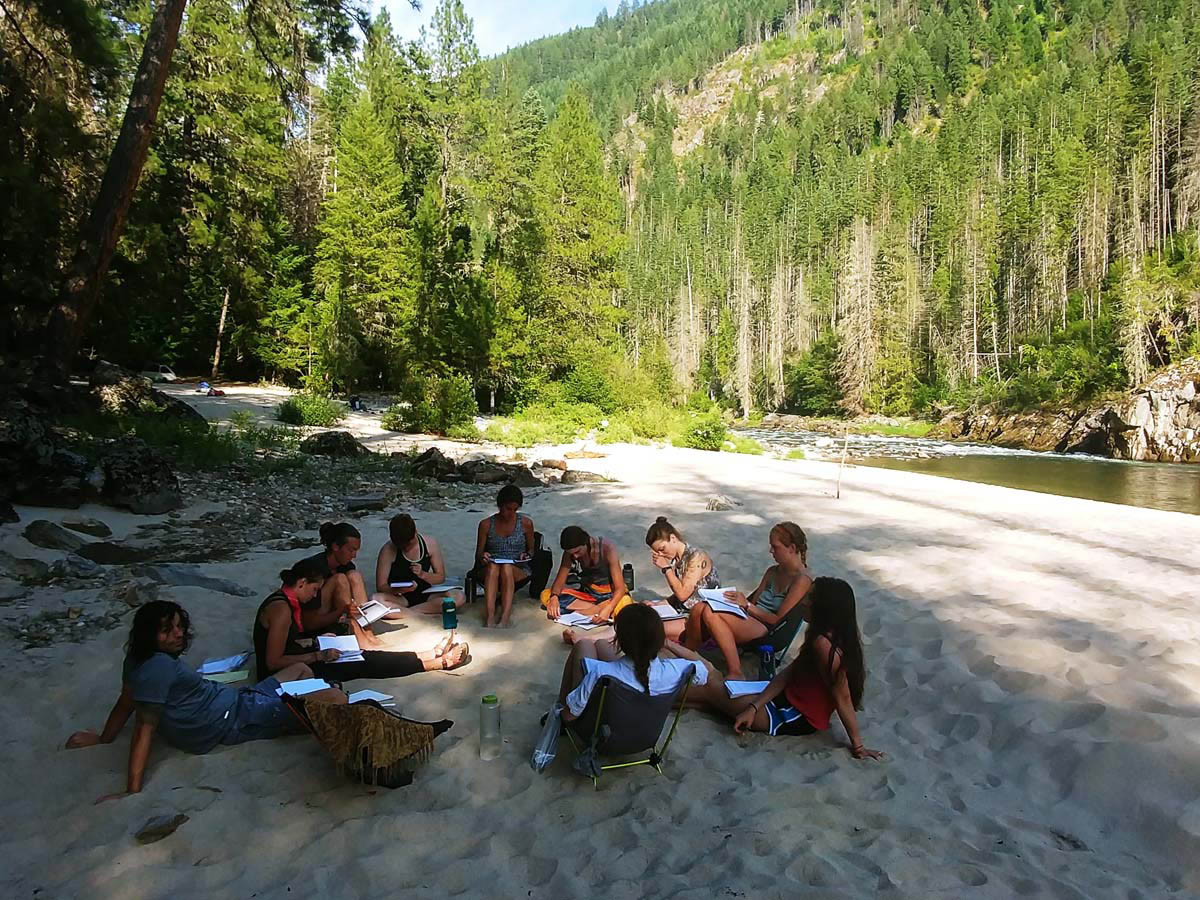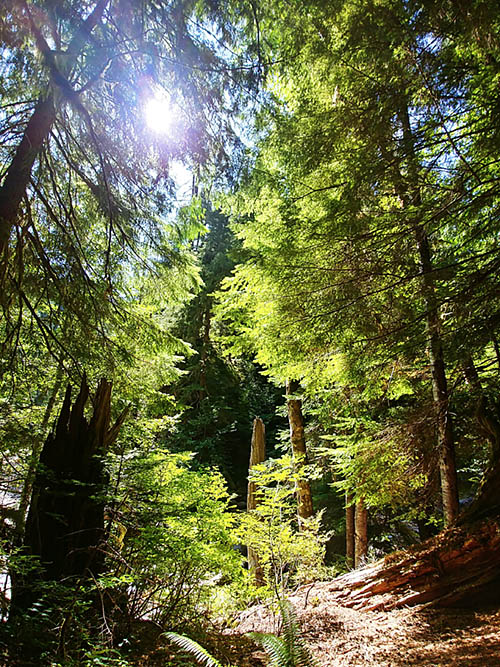Overview
DEADLINE – DECEMBER 4, 2024
THIS PROGRAM HAS NOT YET BEEN APPROVED. This summer program is tentatively scheduled to run for the first time in Summer 2025, but we are still pursuing academic and other approvals. Check back for status updates and to learn when the program is officially approved for applications for summer 2025.
For NON-WU applicants: Application portal will open SOON. While you're waiting, please work to get people to serve as your recommenders: academic advisor, faculty, and personal. Non-WU students must also have an official transcript sent to Willamette (900 State Street OIE, Salem, OR 97301)
For WU applicants: Take a look at the tips on the How to Apply page for How to apply by DECEMBER 4, 2024.
Summer programs are an opportunity to study abroad outside of the academic year. All offer credit, however each program is structured differently and planned by individual faculty members. The Willamette University Art & Ecology Field School is an exciting opportunity to experience the Pacific Northwest and explore art, activism and ecology in a natural setting.
- This program is open to WU students and non-WU students from other universities.
- All majors and levels of experience are welcome. Background (or major) in art is NOT required.
- Program participants are accompanied by a PNCA at WU faculty member.
- Students camp together in the Oregon wilderness (students must provide or rent their own equipment).
- Meals are cooked and prepared communally. Every effort will be made to honor food allergies and, as feasible, food preferences
***

The Art and Ecology Field School (Site-Responsive Studio) asks students to cultivate a relationship with a “natural” place through the experiential research of artistic fieldwork and to respond through a series of self-directed creative projects. Natural, for these purposes, refers to an area largely outside the built environment, where the presence of nonhuman communities are more easily observed than in the city (though we will problematize that notion). Local experts and a diverse collection of readings will offer insight and entry points, and the notion of place will also be a construct of the class community— time together, shared observations, and individual curiosities. This class takes a nonlinear, kaleidoscopic approach to the construction of meaning, honors different learning methods, and rejects the notion of mastery.
The structure of this class is immersive, meaning students will be camping together and collaborating to keep each other safe and comfortable. While “class” times will be clearly-defined, students will be expected to participate to support the group’s wellbeing beyond the academic and creative work on the syllabus. Underlying this framework is an invitation to a model of learning and exchange that you may find is a welcome departure from a typical university atmosphere.
Summer 2025: The Blue Mountains, Eastern Oregon [TENTATIVE based on pending approval.]
In the summer of 2025, the Field School is proposed to take place in Eastern Oregon’s Blue Mountains. The Blue Mountains are a 15,000 square mile geologically diverse part of Oregon that consists of mountains, rolling uplands, and valleys. This rugged landscape of the Blues, as they are often called, have influenced nearly all aspects of human history in the region, from the homelands of Native peoples, to the migration routes of resettlers, to the location and types of natural resources.
The first few days of the program will be preoccupied with travel and orientation, with an emphasis on empowering everyone with the knowledge to keep themselves feeling safe and comfortable. The group will cover best practices for low-impact camping, emergency preparedness, and invite you to lean into the unfamiliar as a way of attuning your senses and igniting creative energy.
Once we’re settled, a typical day will begin with an all-class morning meeting (9am) to cover housekeeping and the day’s creative prompt. The hours from 9-12 will be self-directed class time in your outdoor studio, with the instructor on call for office-less “office hours” (feedback on your in-progress work). Midday (12-3) will be off time for anyone (reading, relaxing, exploring, napping, etc). Each afternoon will include an outdoor class from 3-6pm.
This WU program is open to students from WU and other institutions. It is open to ALL majors and is open to students with an interest in the project. Background (or a major) in art is not required. Program participants are accompanied by a WU faculty member. Students camp together and cook and prepare meals (part of program cost).
Special Considerations |
|
Applicants for this summer program should understand that the program provides unique physical and emotional challenges while in the field. Instructors are certified Wilderness First Responders and trained in risk management. The safety of our participants is our top priority.
|
Program Details
|
Location |
Blue Mountains in Eastern Oregon |
|
Professor |
Ryan Pierce, Low Res Visual Studies; Visiting Associate Professor, Pacific Northwest College of Art |
|
Credits |
This program is open to students from ALL majors and should also be considered by students without any or limited background in art. Earns 3.0 credits, IDS XXX (pending approval) |
|
Grading |
TBD |
|
Dates |
2025 Dates: Tentatively August 3-16, 2025. Arrival date: Accepted students will receive specific dates and arrival instructions at the pre-departure meeting during spring semester. Please DO NOT book travel until instructed by the OIE staff. |
|
Costs |
2025 cost: Tentatively set for $3000 for WU students ($3,200 for non-WU students) based on 10 people. Cost can increase if we do not meet our minimum participation of 13 students. FINAL price will be set at acceptance.
|
|
Scholarships |
Students are eligible to apply for several scholarships coordinated by the OIE. Applicants will be invited to apply for scholarship consideration after the application deadline passes. |
Application
To Apply: Current Willamette students will use the Willamette study abroad application portal. The program's name is Summer Art & Ecology. The deadline is December 5, 2024 for summer 2025 participation.
For any questions or if you experience problems, please email oieadvising@willamette.edu.
All applicants can view general information about the Application Content and the Selection Criteria on the OIE website.
Information Session: Please see the events page for a list of study abroad information sessions.
For more information, email oieadvising@willamette.edu.
Non-Willamette Students
Non-Willamette students of all majors are welcome to apply.
Students from other universities (not Willamette) should use the "Non-WU Students - Apply" button. Specific questions about the program or the application? Email the Office of International Education at oieadvising@willamette.edu.
Since space is limited, priority is given to qualified WU students. We expect that, non-WU students will be able to participate in the program each summer. Non-WU students are strongly encouraged to apply.


